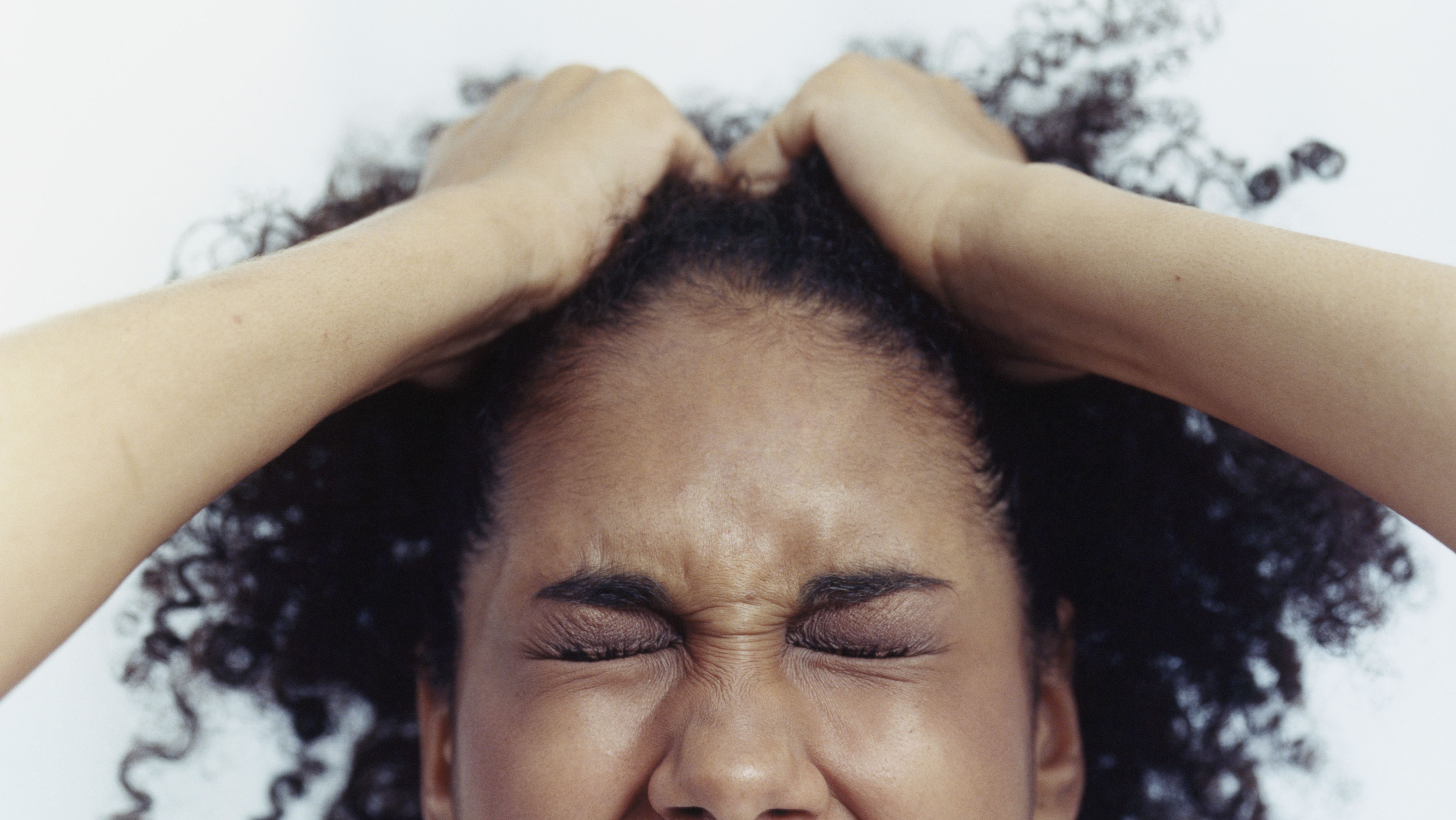What Happens When the World Doesn't Understand Your Hair
"Try being a black woman with naturally curly ethnic texture and see what happens."

Ever since I can remember, my hair has been a source of intrigue. I've never understood why the way I look creates such a reaction from strangers. No, this is not a piece about being admired from afar. If you ever want to understand race relations in America on a weird, can't-really-put-into-words level, try living in the world as a black woman with naturally curly ethnic hair texture and see what happens. (Hint: It will infuriate you.)
I made the decision to stop chemically relaxing my hair last March after a particularly painful relaxer gave me the will power to just end it. The decision was immediate, but the process to accept the change was long and hard—and it brought back a lot of painful memories about why I did it in the first place.
When I was in grade school, I was teased for years by both white and black students about the look of my hair, and was eventually beaten up in the school yard by my classmates (all girls, for the record). They beat me to tell me that I'd never "pass" as white, and as a rubber-soled shoe was held on the side of my face, I was told I would get a final lesson, a reminder that "you got n*gga hair like everyone else."
They jabbed my face and hair with pencils, to prove my curls were so kinky that the pencils would stay in place—and they did. One of the bullies was even of my own race, with skin not unlike my own.
I ran into the building and tried to hide the marks they left, embarrassed and confused. By the time I got home, I knew what I needed to do: I would straighten my hair. I wish I could say this was a choice of fashion and of my own volition, but looking back it was a clear reaction to my shame. It was a ploy to become somewhat invisible—I just wanted people to leave me alone. If blending in with the walls was the answer, I would become wallpaper.
The young have remarkable powers of recovery—we learn to forget in order to live. I buried the incidents for decades, without a single person challenging my decision to straighten my hair. By high school, no one even knew my hair texture was different from what they saw.
I was on the subway a few weeks ago and I overheard two women talking about my David Yurman ring. "You know it's not real," one sneered. "Unless it's stolen."
For years, I kept relaxing my hair. I worked in corporate America, where I stayed true to the uniform, but even experimentation with hair color brought questions from women of different races. One day, after coming into work with jet-black hair, a woman on my team said, "Well if you're black that's your natural hair color anyway, right?" When I explained that my natural hair color was actually medium/dark brown with red streaks, she replied, "That's because you're not all the way black."
Get exclusive access to fashion and beauty trends, hot-off-the-press celebrity news, and more.
Since there's no such thing as "all the way black" and I resent having to argue my race, I end these conversations swiftly with a quip or two, hoping to move on. But the questions rear their ugly heads time and time again, and the more I explain the more I realize that it's not usually about learning or knowledge—it's about the comfort level of the person asking the question.
Now, with wiry curls sprouting from my head, I'm presented with an endless variety of styling options (blowouts, twists, curls, knots, braids...) and just as many reactions from those around me. Let's be honest here: People are the friendliest when they're unchallenged. When my hair is blown straight and silky, the conversation is about everything else: the weather, pop culture, work. But the minute I present myself with styles that aren't smooth, it's like I shine a light on myself. I become highly visible. People I don't know want to touch my hair or ask questions about it. I hear sneers on public transportation. Women try to move their children out of the way. I was on the subway a few weeks ago with a full twist out, and I overheard two women talking about my David Yurman ring. "You know it's not real," sneered one under her breath. "Unless it's stolen."
And suddenly, it's like a thousand sharp pencils stabbing into my ring finger. I am silent, but I am seething. Oprah has naturally curly hair—no one would ever dare question her choices. But I am not Oprah, and I'm angry that my appearance has led to an unfair conviction of my character.
I don't know why anything other than Barbie doll hair suddenly means you're suspect. Your hairstyle is really just about how you choose to express yourself that day. No one should be made to feel uncomfortable for not conforming; we shouldn't have to be invisible to escape scrutiny. Honestly, a hairstyle is usually just a hairstyle. Some days you feel like a blowout, some days you don't.
I don't know why anything other than Barbie doll hair suddenly means you're suspect.
I'm still enjoying getting to know my hair. Whether I'll settle on an Afro or twists, braids or straight hair is all up in the air, but it's a choice I'll make without anyone else's input.
You should also check out:
Zendaya Responds to Giuliana Rancic's Apology About Her Hair
Kelly Osbourne Quits 'Fashion Police'
Your Hair Needs Beauty Sleep? (Yes, and Here's How to Do It Right)